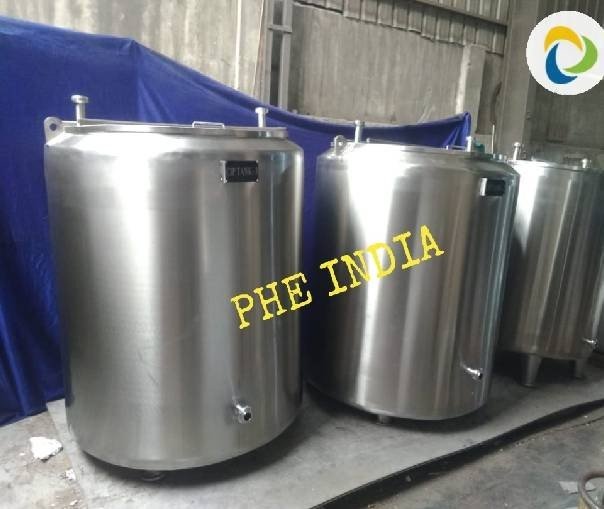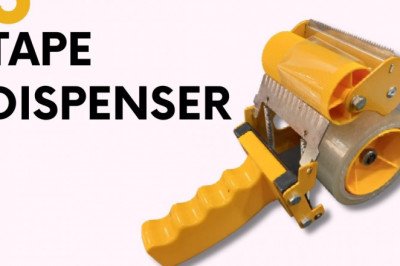views
Imagine a virtual world to which you can connect to interact with all its elements. Perhaps, a city with buildings, green areas and entertainment venues. You create your own avatar, go for a run in a park, buy a bottle of water at the corner cafeteria, and then go to a live Rolling Stones concert. You even keep it in your headphones when you go for a walk in the physical world. It is the so-called metaverse , where data and purchases are transferred between two worlds: the physical and the virtual.

What is real estate?
It is the name of Anglo-Saxon origin with which everything related to real estate or real estate is known. From land and buildings, to property improvements and natural resources. Hence, we differentiate three types of real estate: residential , industrial and commercial
The most curious thing about real estate is not its definition, but all the possibilities it offers when combined with blockchain technology.
The relationship between NFT and real estate
- The rise of the NFT triggers more and more uses and applications in the physical and digital world. Real estate is one of them, but how did this relationship arise and what advantages does it bring?
- Until now, real estate assets were only available to a few, but NFTs turn them into digital assets accessible to all. This is possible thanks to its integration with blockchain technology, which allows obtaining a digital certificate of authenticity and ownership of the asset that is represented. For example, a house. The data of the purchase or sale is stored in the chain of blocks to certify the ownership and uniqueness of the asset in an immutable way.
Unsurprisingly, buying or selling real estate via NFT has its advantages:
- It is accessible to everyone . Anyone can co-invest in a property that was previously only accessible to a few.
- Guarantees authenticity . The property can be associated with an immutable token that works as a certificate of authenticity.
- It is easily associated with a non-fungible token . It is a digital asset capable of representing real world property.
- It is easy to use . They are bought and sold online, so you only need a device with an internet connection.
- The NFT is the most reliable way to own an asset in the digital world, but its trends do not stop growing.
Real estate revolutionizes the metaverse
“Real estate already moves 500 million in the metaverse worldwide”
The headline was pronounced by CNBC at the end of 2021, but it remained in our memory because it was an insignificant figure for what it could become in 2022.
As technology crosses the line of the traditional, virtualization becomes a parallel world populated by imagination.
What if we could buy digital real estate assets in a virtual world?
This is what is beginning to happen with the metaverse development company, which, although Neal Stevenson already mentioned it in 1992, had not had a fully functioning economy until now. Data, digital assets, and real estate will work throughout the virtual space, with many users and businesses creating the experiences that populate it.
It will be a mass participation medium with a fair economy, where users can participate, buy, sell and receive rewards. It sounds a lot like the real world, but now you will guarantee ownership of virtual real estate. To do this, you will use the NFT or non-fungible token.
Unlike video games, the metaverse does not start when the user logs in, nor does it end when the user logs out, but rather it is sustained and does not end. Therefore, the metaverse is not just a game. It’s not just Decentraland or Axie Infinity, it will be a way to combine physical and digital worlds at the same time to be present in any of them. All in one.
The same is the case with NFTs, many people consider them part of a game. CryptoKitties, Sorare and other digital collectibles were born there. But real estate invites us to take a look at NFTs as a business model, as well as other projects that combine them with DeFi to build value chains.
This bridge between the real and the virtual world has a name, it is called Web3 or decentralized web, and it is responsible for uniting the metaverse and the NFT.
Real estate, NFT and metaverse: what is the future?
The result would be something like teleporting to a new world through virtual reality glasses. But the metaverse application development services is not new. We’ve already seen flirtations in movies like Free Guy. Neither are non-fungible tokens. They have been taking advantage of the cryptocurrency boom for years. Nor is real estate new.
What is new is the union of these three concepts, because the possibilities for the future can be unimaginable.
As virtual experiences become more immersive and our identity becomes more tied to the online world, the virtual economy becomes more robust. The trend towards buying real estate will expand. And people will take everything we own wherever we go in the virtual world. It could be the start of the Direct-to-Avatar (D2A) economy.
We know that it is not easy to unite two very different worlds: the volatility of crypto and the stability of real estate. But the real estate industry can provide the stability and security that a sector marked by inconsistency needs. In fact, NFTs in real estate are synonymous with authenticity and ownership. And its leap into the metaverse could generate amazing usage and revenue statistics for investors.
#nft #metavere #real estate












Comments
0 comment